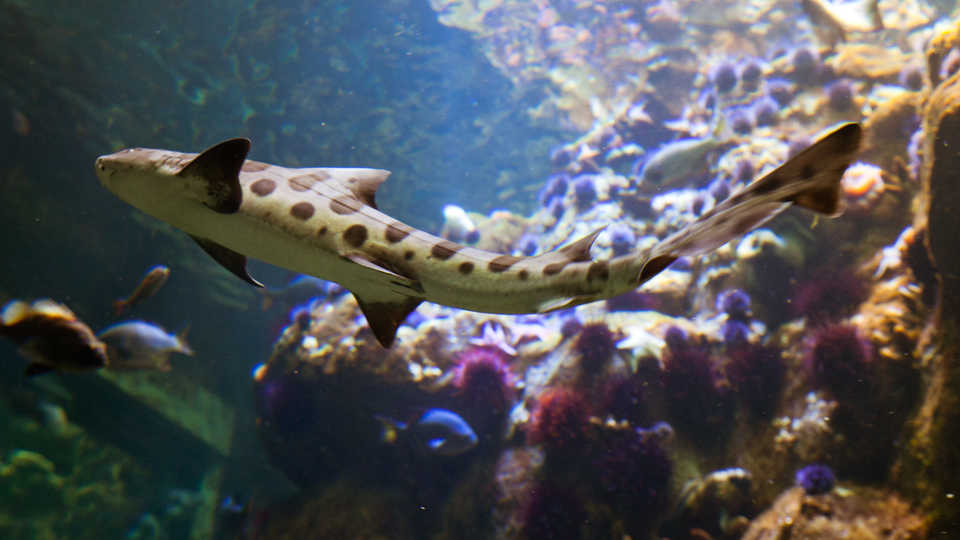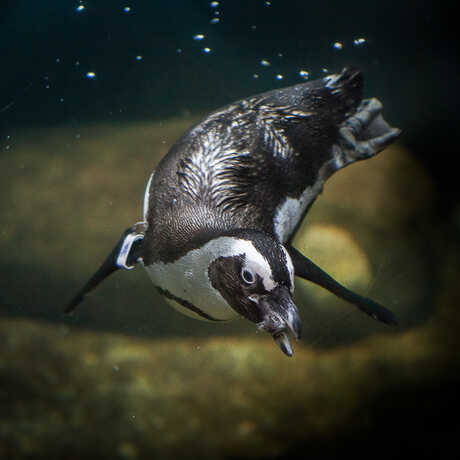Department: Aquatic Biology
Expeditions: 24
Videos:
A Living Fossil
Evolution
Sharks
Galapagos in a Submersible
Related Websites:
Seafood Guide
Dying for a Bowl of Soup, Humane Society International
Shark Finning, Shark Specialists Group

Seven questions with Dr. John McCosker, Senior Scientist and Chair of the Department of Aquatic Biology.
In 1972, every university on the coast wanted an oceanographer. After completing my dissertation at the Scripps Institution of Oceanography, I taught briefly at UC San Diego and then pursued a post-doctoral fellowship in Eastern Australia. While diving off the coast of New Guinea I received a telex: “Steinhart Aquarium director drowns. Position open. Are you interested in a job?” In 1973, I became the youngest guy on the staff, and the head of the staff.
My parents dragged me here as a boy in 1954. Aquariums were a big deal in The '50s and '60s. The Steinhart was one of the foremost examples of grand old European style aquariums in the U.S. During one year in the sixties, the Steinhart drew more visitors than the Louvre Museum in Paris.
I became an oceanographer at precisely the right time. Jacques Cousteau had popularized oceanography with his undersea films. They had captured the attention of government officials who said, “Where's the American oceanographic discoveries coming from?” Before I knew it, the Office of Naval Research was paying for my graduate studies in oceanography.
Sandy, the great white shark. It was the first great white to survive in captivity. A local fisherman caught it and brought it to us. After four days, we let it go back to the wild. We tagged it so we know it lived for a least a year after that.
Begin by convincing people not to support the shark fin soup market. Enforce legislation to prohibit the taking of shark fins. Finally, educate the current generation to convince their parents not to eat shark fin soup.
The living coral reef. It will feel the same as when you go scuba diving but without getting wet. You'll be side by side with the fishes. I think it will be so spectacular people will come to their senses and say, “We have to protect this!” Our only hope is public education.
Science provides predictability. Science gives you tools to explain the past. When you know the past you can predict the future.
Department: Aquatic Biology
Expeditions: 24
Videos:
A Living Fossil
Evolution
Sharks
Galapagos in a Submersible
Related Websites:
Seafood Guide
Dying for a Bowl of Soup, Humane Society International
Shark Finning, Shark Specialists Group
Be mesmerized by colorful coral reef fish, soaring stingrays, and adorable African penguins—streaming live to your device, 24/7.
